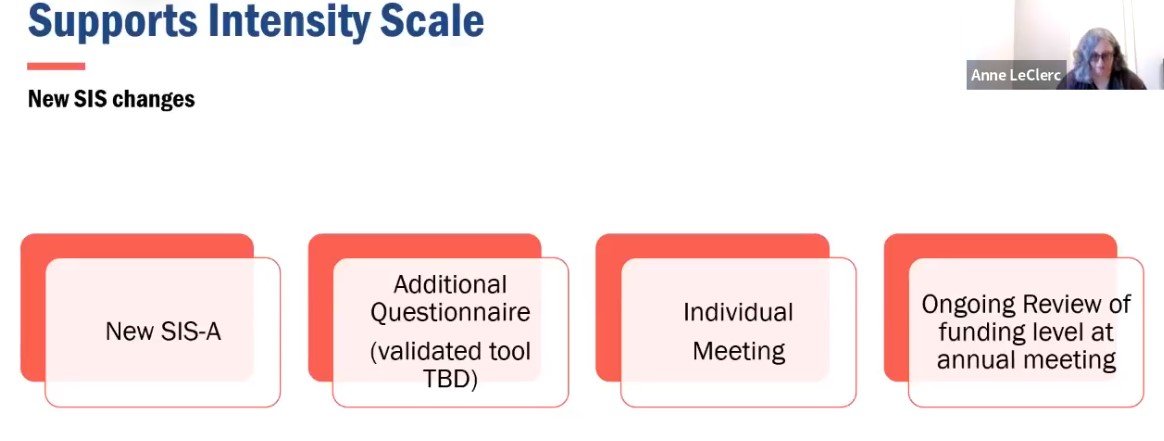DOJ Seeks Fines Up To $50K Daily For Rhode Island’s DD Consent Decree Noncompliance
/By Gina Macris
The US. Department of Justice has proposed fines up to $1.5 million a month against the state of Rhode Island for failing to comply with a civil rights consent decree protecting adults with developmental disabilities during the last seven years.
The proposed fines are part of a preliminary filing in connection with a contempt hearing scheduled for mid-October by Chief Judge John J. McConnell of the U.S. District Court.
“The United States has sought for several years to work with the State regarding its noncompliance, to no avail,” said the DOJ lawyers.
In a memorandum to McConnell, the DOJ said that the state has fallen far short of numerical targets for providing services for integrating adults with developmental disabilities in their communities, both for employment and non-work activities.
Nor has the state kept its promise to provide adequate funding to maintain the number of agencies and workers needed to provide these services, the DOJ said. Then-governor Lincoln Chafee signed the consent decree April 8, 2014.
If necessary, the DOJ said, it will present evidence in October that state “failed even to ask its Legislature for a sufficient appropriation” and that it “failed to make efficient use even of the resources it had – for example, by failing to modify State rules and incentives that favor providers of less integrated services over providers of more integrated services.”
Those “rules and incentives” allude to Project Sustainability, a ten-year old fee-for-service reimbursement model that still allocates 40 percent of a recipient’s service hours to segregated, center-based care.
The DOJ said the court should “impose a reasonable fine on the state to incentivize it to rapidly come back into compliance with the Consent Decree, and to compensate for the state’s current underfunding of services.”
The proposed schedule of fines:
$500,000 on the first day of the month for the first two months after a judicial finding of contempt.
$50,000 a day, or about $1.5 million a month, beginning on the 70th day after a contempt order. The money would be deposited in a special fund to be used for consent decree compliance. The state should be prohibited from paying the fines out of any funding that otherwise would benefit Rhode Islanders with disabilities, the DOJ said.
McConnell has cleared the week of Oct. 18 through Oct. 22 to hear evidence in the contempt proceedings. The consent decree draws its authority from the Integration Mandate of the Americans With Disabilities Act, as reinforced by the Olmstead decision of the U.S. Supreme Court.
To help remedy any contempt finding and lessen fines, the state could increase the number of supported employment placements and expand the service hours of integrated daytime activities in accordance with the consent decree, the DOJ said.
In a separate step, the DOJ asked McConnell to order the state to prepare a plan for funding and complying with the consent decree before its term ends June 30, 2024. Such a document could help remedy the contempt and, with the court’s approval, could be incorporated in the existing decree.
By its own account, the state has missed its employment targets by more than a third for people in two categories of the consent decree population. They are the “Youth Exit” group, adults who left high school between 2013 and 2016, and the “Sheltered Workshop” group, those who once worked for subminimum wages in sheltered workshops, which were eliminated in 2018.
The chart below, from the state’s report to the court for the quarter ending March 31, shows employment in relation to the latest consent decree targets for a 12-month period. While part of the slow growth during 2020 might be attributed to the COVID-19 pandemic, the state had been falling further behind in previous years.
In another category, only 55 percent of adults are participating in integrated non-work activities in the community for slightly less than ten hours a week, on average, and only a fraction have a combined schedule of employment and other activities in the community filling more than 20 hours a week, according to the latest report of an independent court monitor, cited by the DOJ. In the consent decree, the state agreed to fund services for a total of 40 hours a week.
The DOJ also cited the monitor’s assessment that the state lacks the workers and the funding necessary to provide the services to comply with the consent decree.
Consultants from Approach Group, a Boston-based firm, have calculated the worker shortage at more than a 1000 of the 2845 direct care staff it said are needed to support Rhode Islanders with developmental disabilities in the community.
Separately, Approach Group and three other consultancy firms participated in 18-month, $1.1 million analysis of the developmental disabilities system commissioned by the state that found fiscal instability in the private provider system, which the state relies on for compliance with the consent decree.
The organizer of the four firms, the New England States Consortium Systems Organization (NESCSO), submitted its final report July 1, 2020, to the state Department of Behavioral Health, Developmental Disabilities and Hospitals (BHDDH), laying out various options for alternatives to the state’s fee-for-service reimbursement system.
But the state’s subsequent budget deliberations did not address the NESCSO report or the needs it identified.
Instead, it appeared that BHDDH and Governor Dan McKee’s initial budget proposal responded to a directive from the Office of Management and Budget for a 15 percent budget reduction across the board.
In the end, Judge McConnell ordered state officials and providers to negotiate a wage hike in an effort to attract more workers.
As a result, the General Assembly set aside $39.7 million in the current budget for raises of $2 to $3 an hour for front-line workers and their supervisors, effective July 1. McConnell also has ordered that entry-level wages climb to $20 by 2024 to make Rhode Island competitive with neighboring states in what is a nationwide shortage of caregivers.
While the state is facing the prospect of hefty fines beginning as soon as November, BHDDH is seeking further study of the needs of adults with developmental disabilities.
Despite NESCSO’s detailed analysis and presentation of options for systems change, BHDDH reported to the court in July that “efforts are underway to draft an RFP (request for proposals) for a Systems Rate Review.
“The focus of this Rate Review will be to take an in-depth look at how services are funded in the Adult DD System to determine if the funding is adequate; if the appropriate services are being funded; and to look at new services categories,” the state’s report to McConnell said.
To read the DOJ’s proposed contempt order, click here.
To read the DOJ’s motion for contempt, click here.
To read the DOJ’s arguments for contempt, click here.
For charts supporting the DOJ’s arguments, click here.









